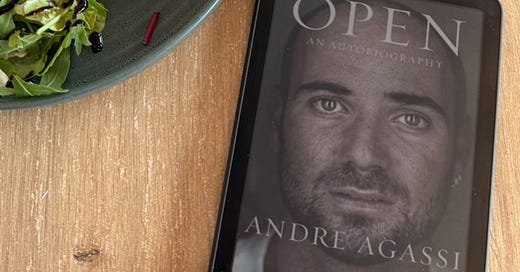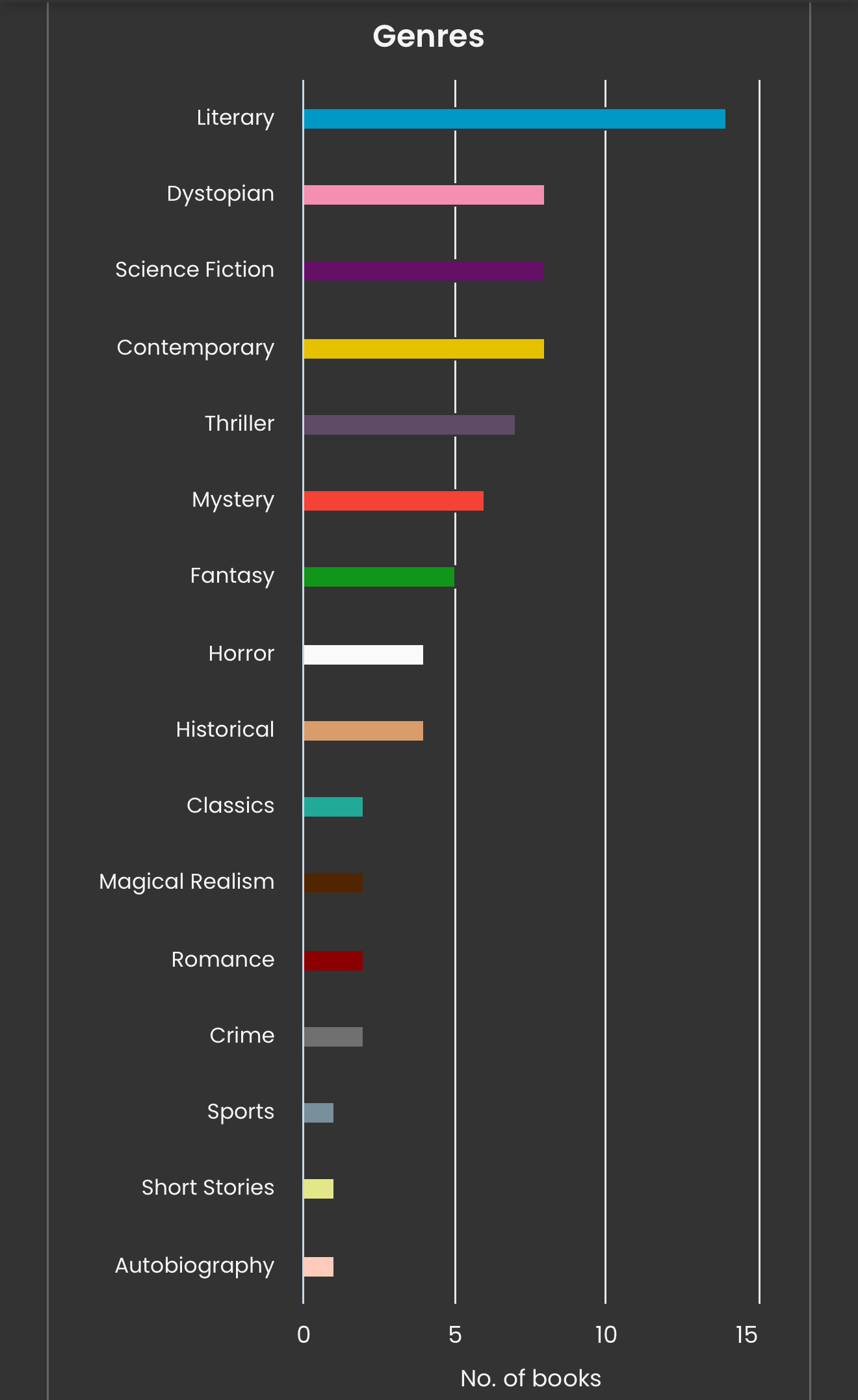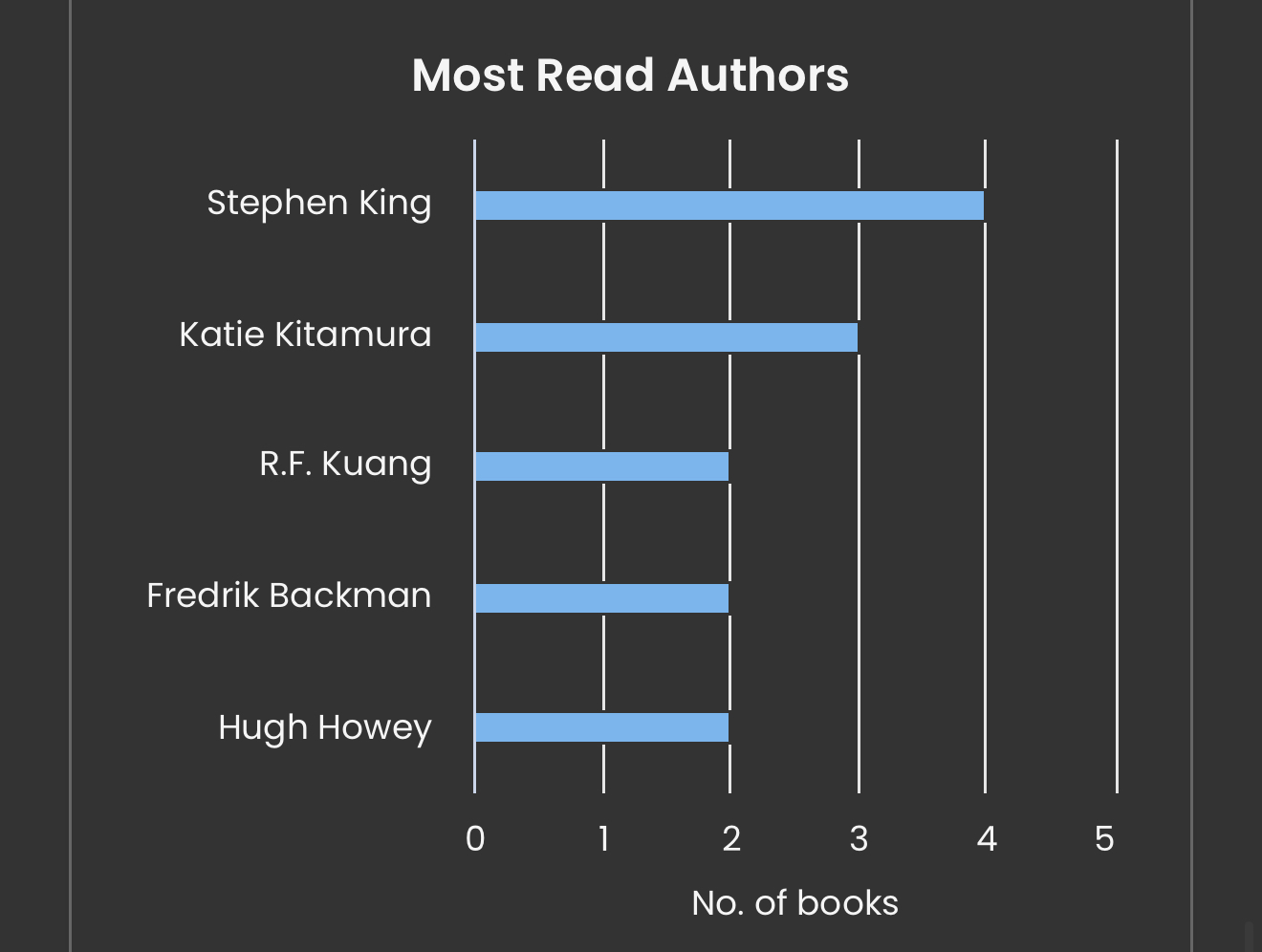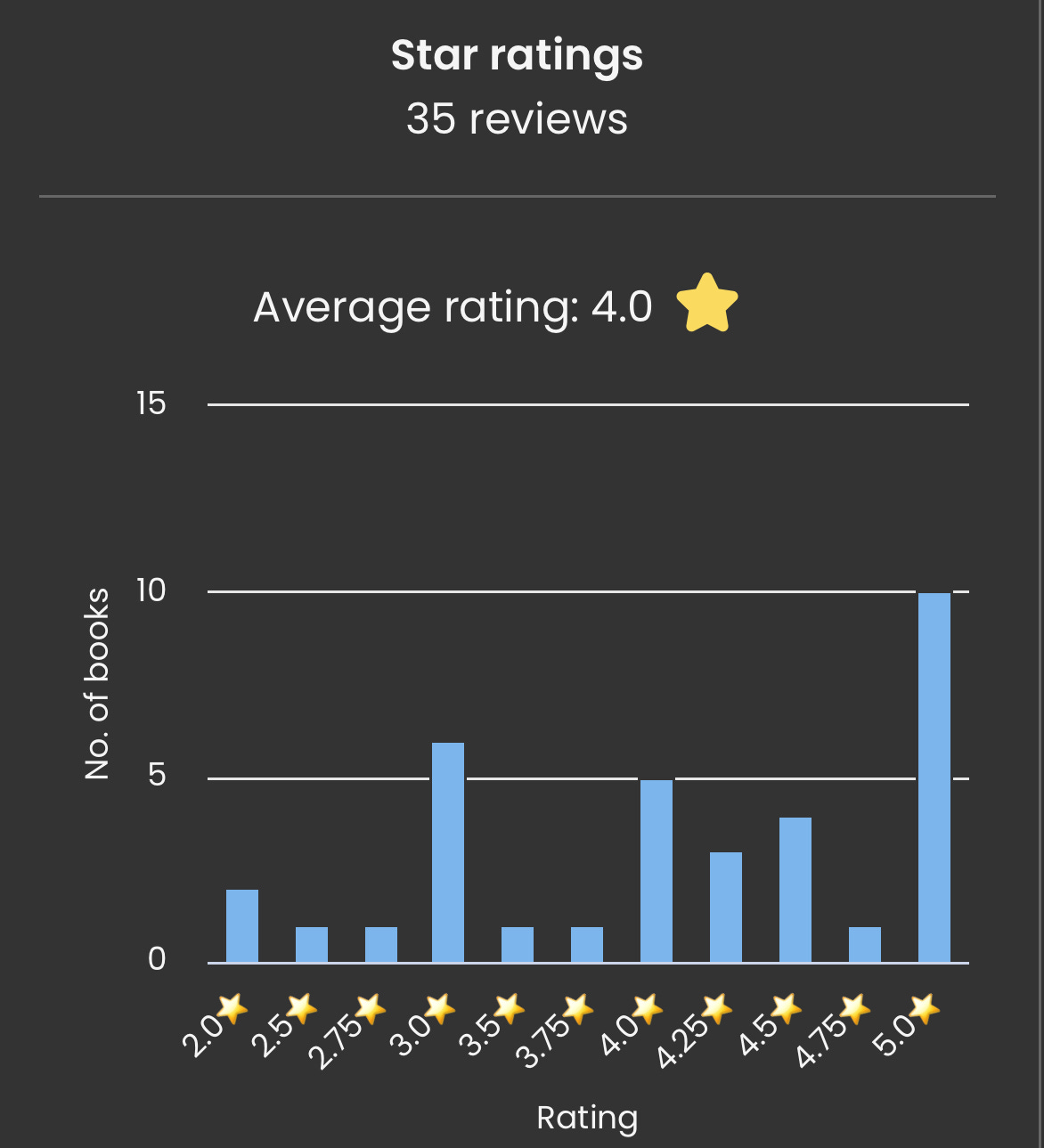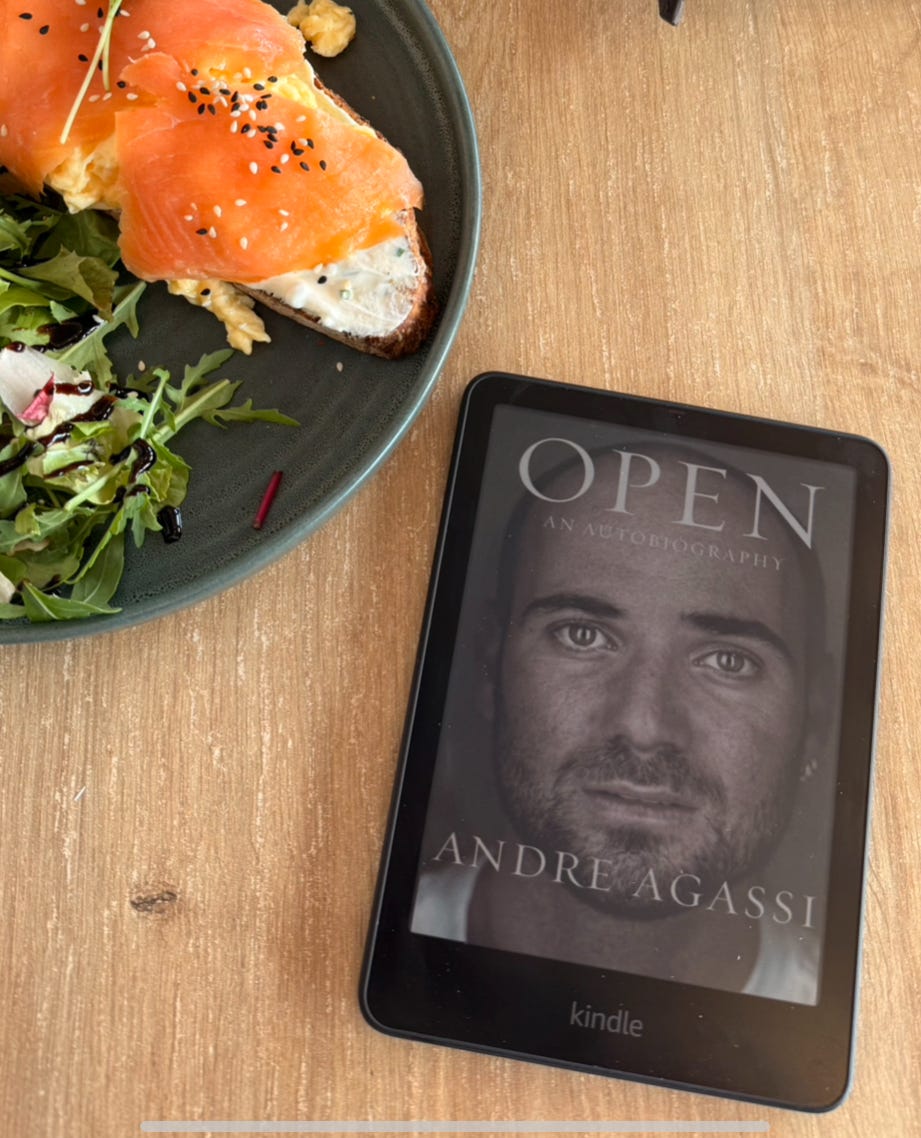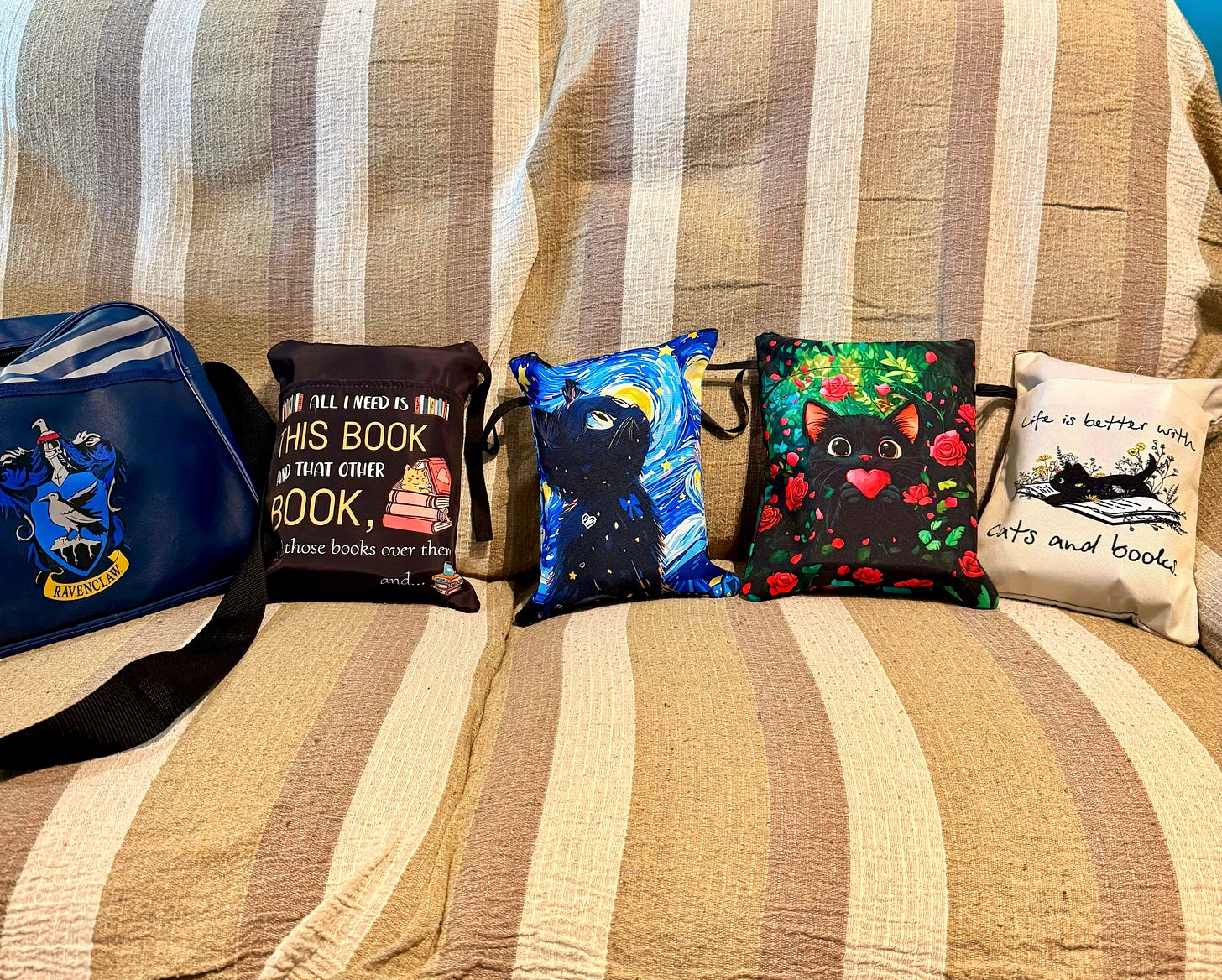Yearly Reading Challenge Completed, Ghostwriting an Autobiography, Check Out my Holiday Book Pile
I am going on holiday for two weeks, but I plan to be writing about all the reading I’ll be doing!
Hello and happy Sunday!
I have just finished the only non-fiction book I read this year and with it, I achieved my 2025 Reading Challenge of 35 books. Back in December, I didn’t think it would beat the 35 books I set the goal to. The past couple of years I fell short by a few books, so I adjusted my expectations and aimed low.
When Goodreads launched their Reading Challenge feature a good few years ago many readers said it took them out of their years-long reading slumps. A few years later, I started seeing articles militating for the opposite: don’t set a goal, don’t tire your brain out with such pressures, where’s the fun in reading just to achieve a number?
I can see arguments for both these points of view, but nothing compares to visualising your year through books: I like to look back on what I’ve read and attach a memory or a feeling to each cover. Since a third of these are on the Book Club list, many books will stir memories of the book discussions, and they’re always fond memories of book club members getting passionate and sharing parts of the books that escaped me. No two persons ever read the same book, remember?
This is not a sponsored post, but with apps like The Story Graph, my list of books becomes a whole different story indeed with every different slice of the data. If someone asked me what genres I read this year, I would probably say “Errr, fiction?” Of course, more than one label is applied to every book, so you could have a literary sci-fi, but still; it’s fascinating to analyse.
I hadn’t even realised I had read four Stephen King books this year.
And it turns out I am not too harsh on my book ratings, or I just somehow read all the right books for me:
Check out The Story Graph if you’re into cool stats like this, and although I roll my eyes every time I see an app that says their AI “really” works, The Story Graph is trying to offer personalised recommendations based on your liked books and previous ratings. I usually have such a long TBR that I am not looking for recommendations, so I haven’t tried it yet. But my super stats-savvy friend is intrigued and impressed by it, so it must be good.
My only non-fiction read this year: Open, An Autobiography, by Andre Agassi
I picked Andre Agassi’s autobiography almost unawares. It’s the perfect example of marketing influencing the sleeper brain: I kept seeing posts by celebrities and anonymous people alike expressing awe at how well it’s written. So I had it on my Kindle and kept seeing its cover, until last week, one evening before bed, after finishing Never Flinch by Stephen King, I thought I would just open it and see how it starts. It’s a rare occurrence for me, not being able to put a book down before bed: I normally don’t have qualms about falling asleep while reading and the Kindle is usually tucked away under my pillow.
In this case, though, I was 100 pages into the book when I realised I was still reading. I am a second-hand fan of tennis: growing up, whenever there was a tennis tournament on TV, my father would have it on. Until I started reading Open I hadn’t realised how many names I know from back in the last ‘90s. And until I started reading about games, sets and matches being played, I hadn’t realised I had such a deep understanding of the game.
The book starts off incredibly well: I was hooked from page one and wanted to read more. Mission accomplished, writer! Whom I thought to be Agassi, in my naïveté; I somehow manage to forget ghostwriters exist, and when I do remember they exist I think “yeah, but surely, a ghostwriter didn’t write this! It’s too personal, too deep, too raw!” When Agassi starts talking about school and how he was always inclined towards the humanities, poetry and books in general, I convinced myself that this was all the proof I needed that it’s 100% him. Sure, and editor will have helped, but the essence comes from him.
Remember my theory about books finding you when you need them the most? I needed to read this book at this time in my life: the parts about self-doubt, depression, physical chronic pain and fatigue spoke to me and went straight into my core, since I’ve been juggling all of these at once for the past three months.
But then, around the 75% mark, something happened, a switch was flipped and I started to get annoyed. I empathised with the misunderstood kid who was a little lost and depressed all along, but I didn’t appreciate the lack of respect or even decency that he shows in his writing about some of the people in his life, from Brooke Shields to the actors in Friends to Pete Sampras and other tennis players. Sure, it doesn’t help that I am a Friends fan, but leaving that aside, some of his renditions of encounters and opinions are plain mean. I wanted to understand what kept me going, and I realised I loved the writing, but disliked the character, or the person, if you will.
So, when I reached the end and got to the acknowledgments, it was all laid out: Agassi profusely thanks a Pulitzer Winning writer who wrote his book for him and who refused to have his name on the book, saying that it’s not his life story, so it wouldn’t be right.
But then, why write it all in first-person singular narration?
I was so disappointed, I felt cheated. I recently read that there is a law being proposed in the EU to force advertisers to disclose whether AI or touch-ups were used on their models when advertising for beauty products. It got me thinking that I would have loved to have an asterisk on the cover to tell me “This autobiography was written by a ghostwriter by the name of J. R. Moehringer.”
Then, this raised another question for me: is it still a ghostwriter if you know their name? I plan to look into this and how it works. If you’re more informed than I am, please, pitch in!
Holidays are coming
They say that Substack writers are in dire need of editors, because of all the sloppy typos that slip through. Most of us, I am sure, are flying solo and most of the time, we don’t even know if someone is reading let alone paying attention to such details. I have a few good friends in the audience who keep me right when my own typos sleep through, and I usually correct them as soon as I am told about them. So if you notice anything, nudge me, I like to keep my posts crisp and neat.
I am saying all this because I am writing the Grapevine a few hours before heading for Greece for a two-week holiday that I’ve been planning since January! My brain has been working on the first draft for a few hours, but I have been driving and I am still not very good at writing-dictation; don’t think I will ever be capable of thinking in full paragraphs aloud!
My husband suggested we try a digital detox and go for 72 hours without any screens. I was about to deem the Kindle and Kobo exceptions, but I thought we should probably stick to a total, cold turkey detox, while we’re at it.
So this is why I am packing a few physical books and classic bookmarks (a few titles are in Romanian, which have been on my TBR and I have been postponing for a long time). I am going to attempt to read some of these books the old-fashioned way: without the audio support and without the backlight! I’ll be reporting on how that went.
Look how neat they all look in their book sleeves!

